In the world of agriculture, the choice of a tractor brand is a pivotal decision that significantly influences farm operations and productivity. With a myriad of options available, selecting the ideal tractor brand requires a comprehensive understanding of various factors. This article aims to delve deeper into the world of tractor brands, offering insights, comparisons, and guidelines to aid in making informed decisions.
Introduction to Tractor Brands

When considering investing in a tractor, the importance of selecting the right brand cannot be overstated. The brand chosen affects not only the initial purchase but also long-term operational efficiency and maintenance costs. Several factors influence the decision, ranging from the specific requirements of the farm to the brand’s reputation for reliability and durability.
Historical Evolution of Tractor Brands
The historical evolution of tractor brands traces back to the late 19th and early 20th centuries when agriculture underwent a significant transformation due to industrialization. In the late 1800s, steam-powered traction engines were used for plowing and hauling purposes. However, the innovation and development of the gasoline-powered internal combustion engine brought a revolution in agriculture.
Around the early 1900s, various companies started manufacturing tractors, aiming to replace traditional animal-powered farming methods. Brands like Ford, International Harvester, and John Deere were pioneers in this era, introducing early models of tractors that were bulky, heavy, and lacked the efficiency of modern designs.
The 1920s marked a period of rapid advancement in tractor technology. Manufacturers began to refine designs, making tractors more practical, reliable, and accessible to farmers. This era saw the introduction of smaller, more maneuverable tractors, which greatly improved agricultural efficiency.
As the 20th century progressed, tractor designs continued to evolve, integrating innovations such as hydraulic systems, power take-off (PTO) mechanisms, and three-point hitching systems, all aimed at enhancing functionality and ease of use for farmers.
The mid-20th century brought about a consolidation of tractor manufacturers, with certain brands gaining prominence due to their quality, reliability, and innovative features. Companies like John Deere, Massey Ferguson, and Case became well-established, each contributing unique advancements in tractor technology.
Advancements in technology and engineering continued, with the latter part of the century witnessing the integration of computerization and sophisticated electronics into tractor designs. This led to the development of precision farming techniques, enabling farmers to optimize their operations with greater accuracy and efficiency.
In recent decades, sustainability and eco-friendly practices have become focal points for tractor manufacturers. Brands are increasingly investing in producing environmentally conscious models, integrating cleaner engines and alternative power sources to reduce environmental impact.
Popular Tractor Brands Today
- John Deere: A prominent name in the industry, John Deere is known for its iconic green and yellow machines. Renowned for durability and cutting-edge technology, John Deere offers a wide range of tractors suitable for various farm sizes and operations.
- Qilu: Recognized for its versatility and robustness, Qilu are favored by farmers worldwide. They offer models designed for efficiency, comfort, and adaptability across different agricultural tasks.
- Kubota: Kubota tractors are celebrated for their compact size, maneuverability, and reliability. These tractors are ideal for small to medium-sized farms and landscaping purposes, known for their ease of use and fuel efficiency.
- New Holland: New Holland tractors are synonymous with innovation and high performance. Known for their advanced technology and ergonomic design, they offer a range of models suitable for various agricultural applications.
- Case IH: Case IH manufactures powerful and technologically advanced tractors designed to enhance productivity. These tractors are known for their efficiency in heavy-duty tasks and their integration of cutting-edge agricultural technology.
- Mahindra: Mahindra tractors are praised for their affordability, reliability, and versatility. These tractors cater to a wide range of farming needs and are often preferred by small-scale farmers for their value and efficiency.
- Fendt: Fendt tractors are recognized for their innovation and efficiency. They are known for pioneering features like their Vario continuously variable transmission (CVT) technology, offering high performance and fuel efficiency.
Factors to Consider When Choosing a Tractor Brand
- Engine Specifications and Power: Assessing the horsepower, torque, and engine performance is pivotal. The power output determines the tractor’s capability to handle various agricultural tasks efficiently. Understanding the engine’s capacity in relation to the farm’s requirements is crucial.
- Durability and Build Quality: A durable tractor withstands rigorous use and adverse conditions. Examining the construction, materials used, and overall build quality helps in choosing a tractor that ensures long-term reliability and resilience.
- Technology and Innovation: Modern tractors integrate advanced technology for enhanced productivity. Features such as GPS guidance systems, automated controls, and precision farming tools can significantly boost efficiency. Evaluating the technological offerings and their relevance to farming practices is essential.
- Adaptability to Farming Needs: Consider the versatility of the tractor. Some brands offer models suitable for specific tasks like plowing, harvesting, or towing, while others provide more adaptable machines. Matching the tractor’s capabilities to the farm’s diverse requirements is crucial.
- Comfort and Ergonomics: Operator comfort is vital for long hours spent operating the tractor. Assessing the cabin design, seating comfort, visibility, and ease of controls ensures a more productive and comfortable working environment.
| Factors to Consider | Description |
|---|---|
| Engine Specifications and Power | Evaluate horsepower, torque, and engine performance to match farm requirements. |
| Durability and Build Quality | Assess construction, materials used, and overall build for long-term reliability. |
| Technology and Innovation | Consider integration of GPS, automation, and precision farming tools for enhanced efficiency. |
| Adaptability to Farming Needs | Assess compatibility with various tasks like plowing, planting, and towing for versatility. |
| Comfort and Ergonomics | Evaluate cabin design, controls, visibility, and operator comfort for prolonged usage. |
| Maintenance and Service Support | Check availability of spare parts, service centers, and after-sales support for ongoing maintenance needs. |
| Cost and Value for Money | Consider initial cost, cost of ownership, and overall value provided by the brand. |
| Resale Value and Reputation | Review brand reputation for retaining value in the resale market and overall market perception. |
Comparative Analysis of Top Tractor Brands
-
 4 Wheel Drive 140HP Tractor 1604
4 Wheel Drive 140HP Tractor 1604 -
 140HP Farm Tractor 1404
140HP Farm Tractor 1404 -
 130 HP Farmall Tractor 1304
130 HP Farmall Tractor 1304 -
 The Heaviest QILU 260HP Modernization Tractor
The Heaviest QILU 260HP Modernization Tractor -
 Powerful QILU 240HP Heavy Chassis Tractor
Powerful QILU 240HP Heavy Chassis Tractor -
 International Standard Power QILU 220HP Farming Tractor
International Standard Power QILU 220HP Farming Tractor -
 China 100HP Tractor Supplier
China 100HP Tractor Supplier -
 OEM 80HP Tractor Factory
OEM 80HP Tractor Factory -
 China 70HP Tractor Wholesale
China 70HP Tractor Wholesale
Performance Metrics and Comparisons:
- Engine Power and Efficiency: Assessing the horsepower, torque, and fuel efficiency of tractors from different brands provides insights into their performance capabilities and operational costs.
- Technology Integration: Comparing the technological features offered by each brand, such as GPS guidance systems, automated controls, and precision farming tools, helps determine which brand aligns best with modern farming practices.
- Build Quality and Durability: Analyzing the construction, materials used, and overall build quality of tractors helps assess their durability and reliability in various farming conditions.
- Versatility and Adaptability: Examining the range of models and their suitability for diverse farming tasks, from plowing to harvesting, towing, or specialized applications, reveals which brand offers greater versatility.
User Reviews and Feedback:
- Farmers’ Experiences: Collating user reviews and feedback from farmers who have hands-on experience with different brands provides invaluable insights into real-world performance, reliability, and user satisfaction.
- Service and Support: Assessing user experiences with after-sales service, availability of spare parts, and the overall support provided by the brands aids in understanding the reliability of ongoing maintenance and support.
Industry Evaluations:
- Independent Evaluations and Awards: Reviewing industry evaluations, awards, and recognition received by different brands offers a comparative benchmark to gauge their performance, innovation, and customer satisfaction.
- Market Perception and Brand Reputation: Understanding how each brand is perceived in the market and its reputation for quality, reliability, and customer satisfaction influences the overall trustworthiness and value of the brand.
Trends in Tractor Branding
- Sustainability Focus: Brands are increasingly emphasizing eco-friendly and sustainable practices. This includes the development of tractors with reduced emissions, improved fuel efficiency, and alternative fuel options like electric or hybrid models.
- Technological Integration: Tractor manufacturers are integrating advanced technology into their machines. This includes GPS guidance systems, telematics, sensors for precision farming, and automation for enhanced efficiency and accuracy in farming operations.
- Precision Agriculture: Tractor brands are aligning with the trend towards precision farming. This involves using data-driven insights to optimize planting, irrigation, fertilization, and harvesting, resulting in improved crop yields and resource utilization.
- Connectivity and Data Utilization: Tractors are becoming more connected, allowing farmers to gather and analyze data related to soil health, weather patterns, and equipment performance. Brands are leveraging this connectivity to offer data-driven solutions and support to farmers.
- Focus on Operator Comfort and Safety: Brands are placing increased emphasis on ergonomic designs, operator comfort, and safety features in tractors. Comfortable cabins, intuitive controls, and safety enhancements are becoming standard in modern tractor designs.
Impact of Tractor Brands on Agricultural Practices

- Enhanced Efficiency and Productivity: Tractor brands play a pivotal role in improving the efficiency of agricultural tasks. Modern tractors equipped with advanced technology, higher horsepower, and precision features enable farmers to accomplish tasks such as plowing, planting, and harvesting more efficiently and in less time.
- Mechanization and Labor Reduction: The advent of powerful and versatile tractors has significantly reduced the reliance on manual labor in agriculture. Tractors have replaced traditional animal-powered methods, allowing farmers to accomplish tasks faster and with fewer personnel.
- Precision and Accuracy: Tractor brands incorporating precision farming technologies enable farmers to work with greater accuracy. Features like GPS guidance, automated controls, and data-driven insights help in precise planting, application of fertilizers, and irrigation, resulting in improved crop yield and resource optimization.
- Expansion of Farm Size and Operations: Advanced tractors empower farmers to manage larger farm areas efficiently. Increased horsepower and functionality allow for the handling of more extensive operations, leading to the expansion of farm sizes and the ability to manage more diverse agricultural tasks.
- Economic Implications for Farmers: The choice of tractor brand affects the overall economics of farming. Brands offering durable, reliable, and efficient machines can positively impact a farmer’s bottom line by reducing operational costs and increasing productivity.
Choosing the Right Tractor Brand for Your Needs
- Assess Farming Requirements: Begin by understanding the unique demands of your farm. Consider the terrain, size of the farm, types of crops, and tasks to be performed with the tractor.
- Match Features to Needs: Evaluate tractor features against your requirements. Ensure the horsepower, implements compatibility, and technological features align with the tasks you need to accomplish.
- Consider Durability and Reliability: Opt for brands known for their durability and reliability. Assess build quality, materials used, and overall reputation for longevity.
- Technology and Innovation: If advanced technology is crucial for your operations, prioritize brands offering the desired technological features such as GPS guidance, precision farming tools, and automation systems.
- Test and Compare: Whenever possible, test-drive tractors from different brands to assess their comfort, ease of operation, and suitability for your tasks. Compare performance metrics and user experiences.
Future Projections in Tractor Branding
- Advanced Technological Integration: Tractor brands will continue to incorporate cutting-edge technology into their machines. This includes further advancements in automation, artificial intelligence (AI), and data-driven analytics to enhance precision, efficiency, and ease of operation.
- Electrification and Alternative Fuels: Anticipate a shift towards electric and alternative fuel-powered tractors. Brands are likely to invest more in eco-friendly models with reduced emissions and greater energy efficiency to align with sustainability goals.
- Autonomous and Smart Tractors: The future holds the potential for autonomous tractors capable of performing tasks without direct human intervention. These smart machines may utilize AI, sensors, and GPS technology for autonomous navigation and precise farming operations.
- Customization and Modular Designs: Tractor brands may offer more customizable options and modular designs, allowing farmers to tailor machines to specific tasks and preferences. This trend caters to diverse farming needs, enhancing flexibility and efficiency.
- Enhanced Connectivity and Data Utilization: Expect further advancements in connectivity, enabling tractors to seamlessly communicate with other farm equipment and central systems. This facilitates real-time data collection, analysis, and decision-making for optimized farming practices.
Conclusion
Choosing the right tractor brand is a multifaceted decision that impacts farming operations on various levels. Understanding the nuances of different brands, their strengths, and their suitability to specific needs is crucial for optimal performance and efficiency in agriculture.
FAQs
- Are higher-priced brands always better in terms of quality?
- How important is technological innovation in modern tractors?
- What role do user reviews play in selecting a tractor brand?
- Can a tractor brand affect the resale value of the equipment?
- Are there significant differences between brands in terms of fuel efficiency?

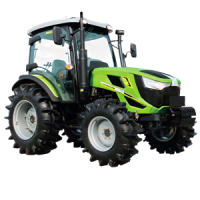
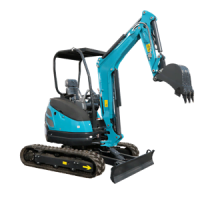
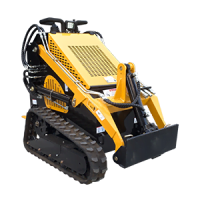
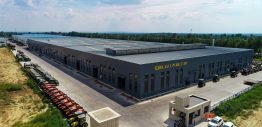

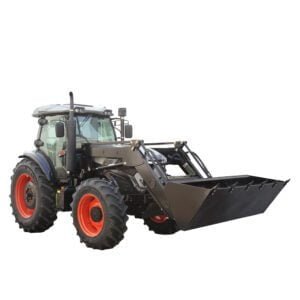
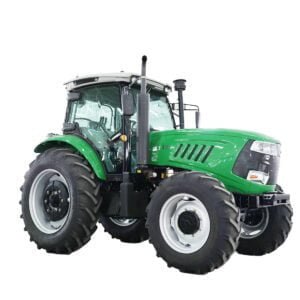






-1.png)